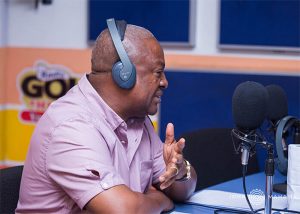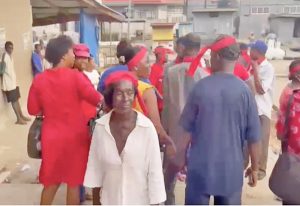By Godwin Owusu Frimpong
As the political landscape heats up ahead of the upcoming elections, the National Democratic Congress (NDC) has taken a bold and controversial stance by refusing to sign any peace declaration. Is this defiance a prudent strategy grounded in experience, or does it raise deeper concerns about the party’s approach to preventing electoral violence?
Johnson Asiedu Nketia, the NDC’s National Chairman, passionately asserts that previous agreements to maintain peace have often turned into empty promises. But can we truly brush off the symbolic importance of peace declarations? Could it be that the call for peace is not just a futile ritual, but a necessary gesture to foster dialogue and accountability among competing political factions?
Asiedu Nketia argues that the essence of a peaceful election transcends the signing of documents. He points to a chilling reality: if societal tensions are not proactively addressed, any act of signing will merely serve as a façade for underlying discord. Shouldn’t there be a more nuanced understanding of the political climate that acknowledges both the importance of symbolic gestures and the critical need for substantive change?
The historical context is compelling; the NDC’s reference to the violent fallout of the 2020 elections—where, despite numerous peace initiatives, the ugly specter of violence persisted—raises profound questions. Was the failure of those initiatives a result of ineffective dialogues, or were the underlying issues so systemic that no declaration could mend the fractures within society?
Nketia’s emphasis on dismantling the “building blocks” of violence highlights a relevant concern. Are political leaders turning a blind eye to the root causes of electoral strife by merely advocating for peace when tensions rise? Instead of reactionary calls for peace agreements, should the focus shift toward a more preventive strategy that addresses issues like illegal security recruitment and economic disenfranchisement?
How should authorities respond to the alarming recruitment of approximately 10,000 individuals into security forces, as highlighted by Asiedu Nketia? Could this be a ticking time bomb that exacerbates unrest, rather than alleviates it? The potential for these individuals to become pawns in a politically charged environment begs the question: What measures are being implemented to ensure that the electoral process is safeguarded from manipulation?
As the NDC navigates these treacherous waters, one must ponder: Is the refusal to participate in peace declarations a robust statement of independence from empty political theatrics, or a worryingly dismissive attitude towards collaboration and engagement in electoral stability? Could the party’s stance alienate potential allies in civil society who seek a peaceful election?
In an era where the fabric of democracy is constantly tested, is it not the duty of all political entities to come to the table, not just for the sake of signing a declaration, but to genuinely engage in dialogue aimed at creating a stable electoral environment? Shouldn’t we be asking if they can afford not to seek peace? The road ahead seems riddled with challenges, and only time will tell if the NDC’s refusal to sign a peace declaration will serve as a catalyst for real change—or if it simply intensifies the looming threats to Ghana’s democratic processes.
Godwin Owusu Frimpong




